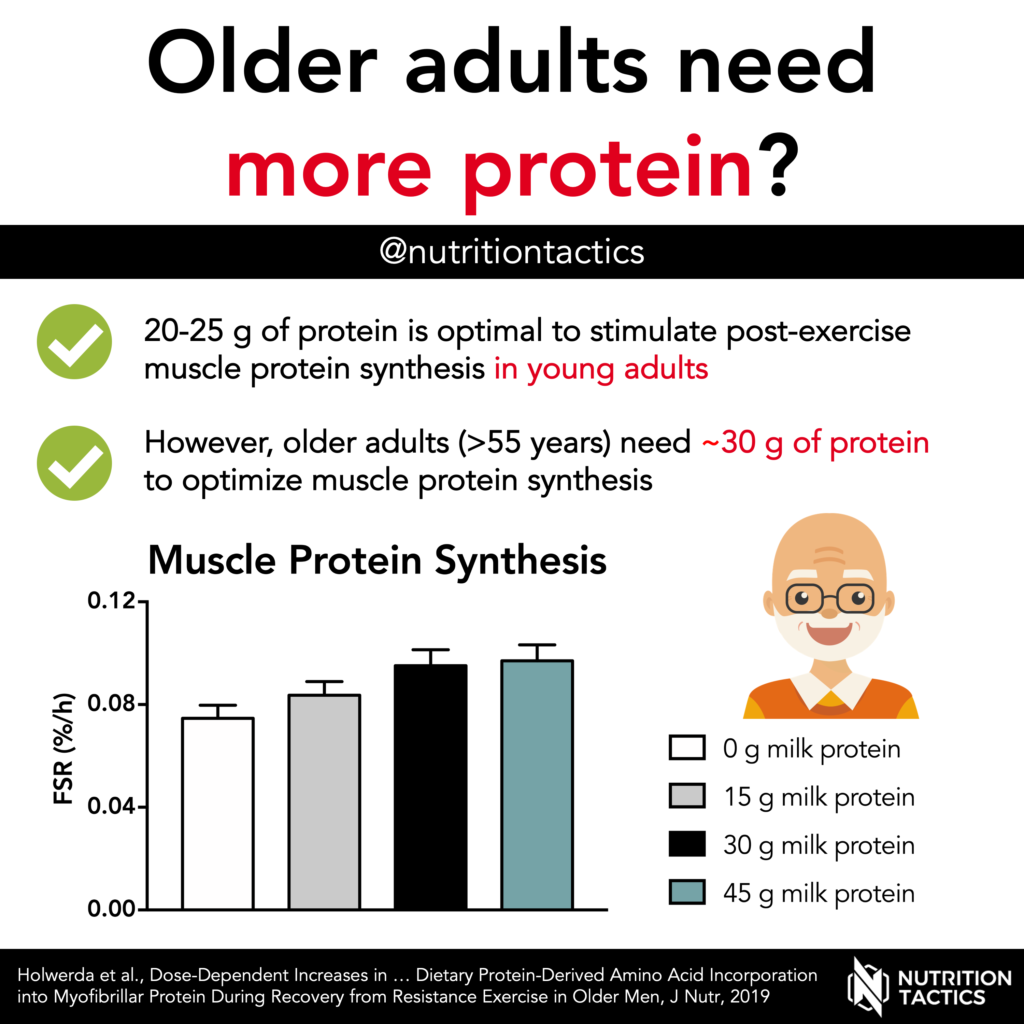Do older adults need more protein following exercise?
Muscle growth occurs when muscle protein synthesis exceeds muscle protein breakdown. Resistance exercise stimulates both muscle protein synthesis and breakdown. Ingestion of protein further increases muscle protein synthesis and is needed to achieve a positive protein net balance.
In young adults, 20 g of high-quality protein seems optimal to stimulate post-exercise muscle protein synthesis. However, is this also true for older adults?
This study investigated muscle protein synthesis rates following ingestion of different protein dosages in older adults. All participants performed a bout of resistance exercise, followed by the ingestion of 0, 15, 30, or 45 g of milk protein.
The ingestion of 15 g of milk protein did not significantly stimulate muscle protein synthesis in older adults. The ingestion of 30 g resulted in a significant increase, with no further increase following the ingestion of the 45 g dose.
These data suggest that older adults may need ~ 30 g protein dose to optimize post-exercise muscle protein synthesis rates. This is approximately 50% higher than what is recommended for younger adults.
Go to the next infographic in the protein series:
Pre-sleep protein beneficial for older adults?


Thanks for sharing. have a few questions after reading , first why were such protein levels chooses, e.g.15, 30…? We already knew 20g was optimal for young people. Second, milk protein is used here and get the conclusion. Will it be different if WPI or casein used? Maybe less whey or more casein needed for the similar effect. Thanks!
There was already a dose-response study comparing 10-20-40 g protein in older adults. So by taking different dosis, we hoped the gain new insights.
WPI, casein, and milk protein isolate are all 3 high-quality proteins. In most situations, I would expect little difference between them.